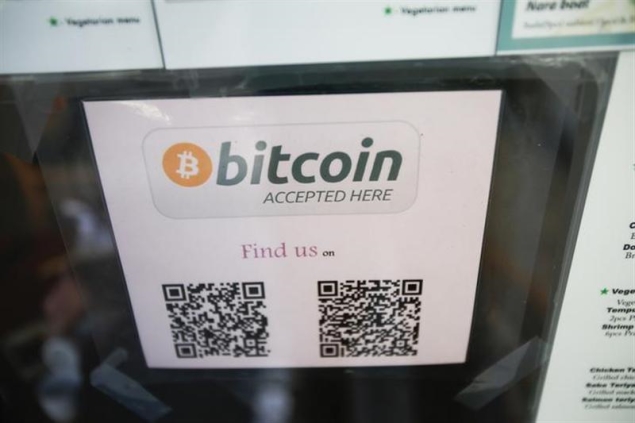- Home
- Internet
- Internet News
- Cyprus' biggest private university to accept Bitcoin payments
Cyprus' biggest private university to accept Bitcoin payments

The country had been a hub for international banking before suffering a collapse in its financial system this year, leading the government to impose controls on the flow of capital as it accepted an international bailout.
But the University of Nicosia said the move to accept Bitcoin was unrelated to the controls. Rather, it was meant to help foreign students in countries where traditional banking transactions are either difficult or costly to pay for programs such as online degrees.
The university's chief financial officer, Christos Vlachos, said the institution, which has about 8,500 students enrolled, is the first in the world to take Bitcoin payments.
Bitcoin is a cryptography-based digital currency that advocates say is counterfeit-proof. Its value is determined by supply - which is limited by its design - and demand. Among the various criticisms leveled at Bitcoin are that it is too prone to price swings against other currencies to be useful.
(Also see: Why the virtual currency Bitcoin is surging in value)
Vlachos said payments are free of risk for the university since it immediately converts the digital currency to euros at the day's exchange rate.
He said that the university is also offering a new Masters' degree in digital currency, a field he says is the monetary equivalent of the Internet in its infancy.
"It's the gold of tomorrow," Vlachos told the Associated Press.
He said the Cypriot government should set up a regulatory framework to attract digital currency trading companies and boost the bailed-out country's foundering economy.
Get your daily dose of tech news, reviews, and insights, in under 80 characters on Gadgets 360 Turbo. Connect with fellow tech lovers on our Forum. Follow us on X, Facebook, WhatsApp, Threads and Google News for instant updates. Catch all the action on our YouTube channel.
Related Stories
- Samsung Galaxy Unpacked 2026
- iPhone 17 Pro Max
- ChatGPT
- iOS 26
- Laptop Under 50000
- Smartwatch Under 10000
- Apple Vision Pro
- Oneplus 12
- OnePlus Nord CE 3 Lite 5G
- iPhone 13
- Xiaomi 14 Pro
- Oppo Find N3
- Tecno Spark Go (2023)
- Realme V30
- Best Phones Under 25000
- Samsung Galaxy S24 Series
- Cryptocurrency
- iQoo 12
- Samsung Galaxy S24 Ultra
- Giottus
- Samsung Galaxy Z Flip 5
- Apple 'Scary Fast'
- Housefull 5
- GoPro Hero 12 Black Review
- Invincible Season 2
- JioGlass
- HD Ready TV
- Latest Mobile Phones
- Compare Phones
- Tecno Pova Curve 2 5G
- Lava Yuva Star 3
- Honor X6d
- OPPO K14x 5G
- Samsung Galaxy F70e 5G
- iQOO 15 Ultra
- OPPO A6v 5G
- OPPO A6i+ 5G
- Asus Vivobook 16 (M1605NAQ)
- Asus Vivobook 15 (2026)
- Brave Ark 2-in-1
- Black Shark Gaming Tablet
- boAt Chrome Iris
- HMD Watch P1
- Haier H5E Series
- Acerpure Nitro Z Series 100-inch QLED TV
- Asus ROG Ally
- Nintendo Switch Lite
- Haier 1.6 Ton 5 Star Inverter Split AC (HSU19G-MZAID5BN-INV)
- Haier 1.6 Ton 5 Star Inverter Split AC (HSU19G-MZAIM5BN-INV)







![[Partner Content] OPPO Reno15 Series: AI Portrait Camera, Popout and First Compact Reno](https://www.gadgets360.com/static/mobile/images/spacer.png)









